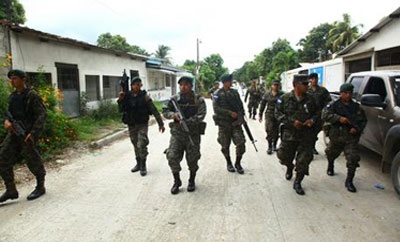Honduras’ 2013 homicide rate may be over six percent lower than the previous year, according to preliminary data, which the government has chalked up to security improvements, though underlying problems continue unresolved.
According to the Violence Observatory at the National Autonomous University of Honduras (UNAH), Honduras’ homicide rate could fall to 80 per 100,000 for 2013, from 85.5 per 100,000 (also according to UNAH numbers) in 2012, representing a 6.4 percent decrease, or 5.5 point drop, in the rate, reported El Heraldo.
The director of the observatory, Migdonia Ayestas, said the apparent decrease in the homicide rate was due to an increase in the population, and that they hoped to see a decrease in terms of absolute numbers as well. Nonetheless, she said the statistic was important for Honduras, as it would help boost tourism and the economy.
National Human Rights Commissioner Ramon Custodio attributed the reduction to the “systematic” purging of the police force, while Defense Minister Marlon Pascua reported a higher 12 percent reduction in the homicide rate, which he linked to security gains.
InSight Crime Analysis
Crime-related violence in Honduras, attributed in large part to the MS-13 and Barrio 18 street gangs, has been estimated to cost the country 10 percent in annual GDP. In 2012, UNAH reported a record year for homicides in Honduras in terms of actual numbers, with 68 more killings than in 2011, though the homicide rate itself dropped a point from 86.5 per 100,000 in 2011. The United Nations Office on Drugs and Crime (UNODC) placed the 2011 rate higher, at 91.6 per 100,000.
In February 2013, Honduras deployed the military to the streets of Tegucigalpa, the capital, and San Pedro Sula, the world murder capital. The military reported a subsequent, though unclear, drop in crime and homicides in San Pedro Sula.
Despite the projected reduction in the homicide rate, the country would continue to be the most violent in the world for 2013 unless rates in other countries rise significantly, and Honduras continues to face a number of serious security problems. An ongoing police reform process has led to the removal of 652 officers according to government figures, but the corrupt police force is itself a major source of violence, reportedly responsible for 149 extrajudicial killings in two years. In addition, gang extortion of businesses and residents is an ongoing and costly problem.

